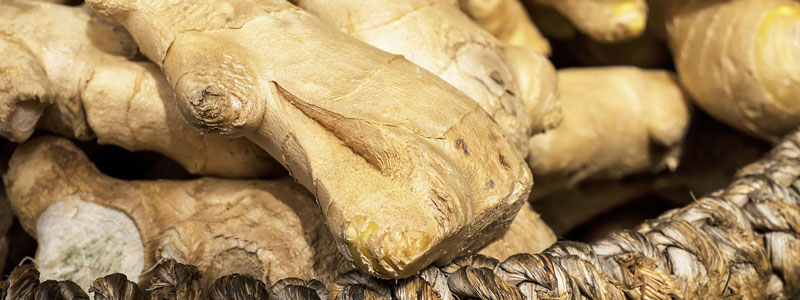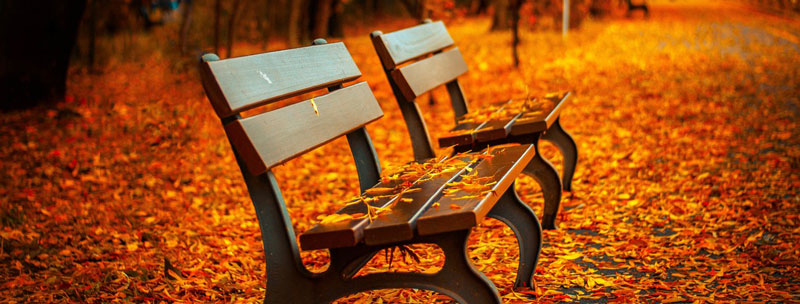
- East Side Acupuncture6515 Basile Rowe
East Syracuse NY 13057
181 Kenwood Ave.
Oneida, NY 13421(315) 569-6579 East Syracuse Hours
Tue9am-6pmThurs9am-6pm
Oneida Hours
Wed9:30am-5:30pm
-
- Sign up to receive news and updates and get my free report:“The Top 10 Reasons to Try Acupuncture”

-
- TestimonialsWhy acupuncture? Why not?! Couldn’t hurt. My husband and I had been trying to get pregnant for 4 years. We were charting my BBT and watching for “signs” of fertility. We tried a ton of stuff. One day my mother had asked if I had ever considered acupuncture for fertility. She said that she had a co-worker whose daughter tried it for her fertility and after one session she ended up pregnant! I thought about it and figured that we... Read more »
When I decided that I wanted to stop drinking; I knew I needed help. I saw a commercial on tv for a addiction recovery place and in it someone was receiving acupuncture. I thought it was a place to start. I found casey on line and made a appt. He asked questions and took some history with out being judgemental then proceded with a treatment. For the first few weeks I was anxious but Casey gave me herb supplements and had me take note of
... Read more »I lead a very active lifestyle and for 4 years I had been experiencing pain in my arms as well as fatigue and shortness of breath whenever I worked out. I had been to several doctors who prescribed the general remedies; iron supplements, ibuprofen and rest. Finally I just gave up and conceded to the idea that the pain would never go away. After constant nudging from my training coach I agreed to go see Casey not really knowing what to expect but... Read more »I sought Casey’s help last year when I started nursing school and became physically ill from all the stress. I had a lot of trouble with my shoulder/back/neck, could not breathe well, and kept having weird pains all over I could not really explain. Casey was able not only to begin unlocking all the chaos in my body, but also to instruct me on the beginnings of better living that have all started coming together. The effects are not always
... Read more »After living a year in terrible pain even after a cortisone shot and physical therapy, I was regretfully facing shoulder surgery for an impingement. At this point, I decided to try one last thing…acupuncture. I found Casey through a referral and he was able to completely relieve my shoulder pain through acupuncture…something that I only thought that surgery and a long road of physical therapy would do. I would recommend Casey to anyone considering acupuncture…he explained exactly what he was
... Read more »I have been treated by Casey for an arthritic neck and lower back and have felt an over-all effective reaction to the acupuncture treatment. I recommend him to my friends and they also have had good results.
I was referred to Casey Lewis for sciatic pain in my leg, which being a hair dresser was becoming extremely difficult to bear. I was also experiencing hot flashes, day and NIGHT. After one treatment, my pain level immediately went from a 8 to a 1, and I have not had a hot flash since!! I have seen Casey only 6 times in 5 months, and my life now is practically pain free. I would recommend acupunture to anyone looking
... Read more »I saw Casey for 16 sessions recently. When I went to see him on a referral from a friend I was most concerned with back pain, but I was also working on some weight loss and thought this would help, as well as some stress relief. I was amazed that after the first visit I had absolutely no back pain and that would last about the full two weeks until I saw him again. He has also helped me with
... Read more »I have had 8 sessions with Casey, for a few issues I was having. Horrible leg cramps were keeping me up. After the first session (and it doesn’t hurt) I had a great nights sleep. My hands and fingers do not go numb, and my overall physical and mental feelings have become much better! I definitely recommend this New/Old treatment to anyone with problems, and definitely before you decide to have surgery. It just might avoid it! (like it did
... Read more » -
Latest Articles:
- • Add These 10 Immune-Boosting Foods to Your Fall Diet •
- • Keep Your Skin Healthy and Glowing with these Fall Skincare Tips •
- • Beat End of Year Burnout with these Fall Self-Care Rituals •
Health Well News
Strengthen Your Immune System with TCM
It’s that time of year again…the weather is getting colder, the leaves have fallen off the trees and people are beginning to trickle into the office with autumn colds and allergies. As an acupuncturist, I have to say I rarely get sick. I have lots of tools and tricks in my bag to stay healthy during cold season, and I’m happy to share some of them with you!
You know how your mom always made you wear a scarf when you were a kid, telling you that you’d catch a cold if you didn’t? I used to think she was just saying that, but as it turns out, there was something to it after all! In the world of Chinese medicine, there is an area at the back of the neck which can absorb wind and cold, allowing it to permeate into your system and creating an ideal situation to catch an actual cold. By keeping this area warm and covered, you are putting up a shield between yourself and this invading wind, increasing your chances of avoiding colds.

Since we acupuncturists view cold as an entity that can migrate into your system, adding warm foods into your diet can help to balance out that cold, keeping you healthy or speeding up your recovery once a cold has set in. Eating chicken soup to ward off illness isn’t just a fallacy; the temperature of the soup is helpful, but there are also lots of “warm” ingredients within the soup. Every food has an energetic quality, and warm spicy foods balance out excess cold in the system. Most good chicken soup has garlic, pepper and other spices that are considered “warm” in TCM.
Adding spicy foods into your diet when cold season hits is a way to protect yourself from succumbing to the sniffles. Whenever I begin to feel a cold coming on, I sautée slices of ginger with a little butter or oil, and add it to a tea made with lemon, honey, cinnamon, clove and a dash of cayenne. I let the ginger soften as I drink the tea, and then eat the ginger. This never fails to get me feeling healthy again, if I drink it before the cold settles into my system. It’s also delicious!
Staying warm and eating the right foods are two ways to stay healthy, and another is acupuncture. If you don’t have access to your acupuncturist, the next best thing is to utilize some acupressure points to crank up your immune system. If you slide your finger down the side of your thumb, you will hit a bone just below the wrist crease. Keep sliding down about an inch or so, and press hard while feeling for a tender spot. This is Lung 7, which is a powerful point to build up the energy of the lung, which boosts the immunity. Another great immunity point is Stomach 36. This point is located approximately four fingers down from the bottom of the knee cap, along the outer boundary of the shin bone. This point boosts the energy of the entire body, so massaging it will help to keep your “Wei Qi” up. This Wei Qi is your defensive energy, which creates a barrier between yourself and pathogens that cause harm. In Western terminology, it would be the equivalent of the immune system. Pressing on both of these points will allow you to tap into the positive effects of acupuncture, minus the needles.
3 Simple Ways to Alleviate the Common Cold
The common cold is something that everybody deals with throughout the year. For some, it’s just a quick two to three day speed bump on the road of life. For others, it can become an ordeal that may last for weeks. Regardless of the amount of time, the common cold has been wreaking havoc on humans for centuries. And to date, nobody has found a bulletproof cure for this little monster.
That is mainly because the common cold is attributed to a virus. There are actually over 200 known viral strains of the common cold. Viruses are tricky because they learn and mutate, making them nearly impossible to treat. When somebody catches a cold, the virus will attach itself to the mucous membranes of the throat and nose. The virus then hijacks the cells that reside in the mucous membranes and forces them to replicate more virus cells. The symptoms of the common cold, sneezing, coughing, sore throat, congestion and fatigue, are all just the defensive attack the immune system mounts when trying to fend off the cold.

If there is no “cure” for the common cold, then how do we deal with it? Well, there are a lot of natural choices out there for fighting the common cold. Some are age-old, tried and true, while others are a little less utilized. We are going to examine three of the most widely known and frequently used ways to alleviate the common cold. Methods we all can use to hopefully bring some relief from the suffering.
1. Chicken Soup
Ever heard the saying “feed a cold, starve a fever”? Well this actually has some validity to it. When the body is fighting off an infection, there may be a fever involved. However, typically with most colds, this is not the case. When a cold occurs, the body needs nourishment to fight off the attack. This is why chicken soup is a great remedy for the common cold. Hot liquids and bland foods like chicken soup, will help keep the body hydrated and nourished. With proper nourishment, the body can return to a harmonious balance and the cold will diminish. And chicken soup is full of essential vitamins, nutrients and antioxidants known to speed up the healing process. Homemade organic chicken soup is the best option.
2. Ginger
Ginger is an amazing plant with lots of healing properties. Ginger can be helpful when fighting off the common cold due to its antiviral, anti-inflammatory and expectorant properties. Eating raw ginger or adding it to tea several times a day, can greatly improve cold symptoms quickly. And to enhance the power of ginger, add some lemon and honey, both powerful herbs in their own right. The anti-inflammatory property in ginger makes it great to help relieve a sore throat. Ginger also helps the body sweat out the toxins associated with the common cold. It is recommended to keep ginger handy at all times of the year and use it as a preventive medicine, even when not feeling sick.
3. Get Plenty of Rest
This one seems like a no-brainer. But in today’s society, we really don’t take this as seriously as we should. When fighting off an illness, proper rest is pertinent. A number of studies have found sleep deprivation leads to poor immune function. Having good sleeping habits will not only help somebody recover from a cold, but it also helps prevent getting sick to begin with. The rest itself should be quality though, not restless. And this can sometimes be difficult with a cold. This is where a lot of people turn to over-the-counter cold medications that contain alcohol. Alcohol will induce sleep but it won’t allow for quality sleep. So try to steer clear of these if possible. And take time off from the everyday grind when needed.
Dealing with the common cold can be difficult but incorporating these important habits, may just be what is needed to kick that cold to the curb. So give them a try next time that nasty cold tries to take control.
Seasonal Change and Back Pain
As the air starts to cool and the sun begins to fade with entrance of autumn, many people begin to experience a flare up in back pain symptoms. Back pain is a very common problem; one that will strike four out of five Americans at some time in their lives. In fact, it’s one of the top reasons people seek medical care. Unfortunately, back pain isn’t always easy to diagnose or relieve. Low back pain in particular can become a chronic, or ongoing, problem.

Acupuncture and Traditional Chinese Medicine (TCM) are very effective in treating back pain and helping keep your body in tune with the seasonal shift. They can also be used together with traditional Western treatments to maximize your healing and recovery.
There are many possible causes for back pain, including strained muscles or ligaments, often caused by improper lifting, sudden movements or traumatic injury. Other culprits include arthritis (whose symptoms can be exacerbated with the onset of cold damp weather), structural abnormalities of the spine, or when the disks between the vertebrae bulge or rupture and press on a nerve.
Practitioners of acupuncture and TCM view back pain another way. An acupuncturist will not only work to relieve your symptoms, but will also work to find and treat the underlying cause of your pain.
Back pain can arise from disharmonies such as:
- Stagnation type pain
- Cold, damp obstruction type pain
- Deficiency type pain
Once I have determined the cause(s) of your back pain, I can create a specific treatment plan designed to address your concerns and boost your overall health and vitality.
Transitioning to Autumn
With autumn approaching and the beginning of the yin cycle, the energy of plants is moving down into their roots, helping the body become aware of the energy of the season. This season is a time for the body to begin gathering energy for the colder months to come.
The lungs and large intestine are the organs associated with fall. The lungs are responsible for the circulation of Qi (the body’s natural flow and circulation), and are also very susceptible to cold and illness. For this reason, it is important to stay healthy and warm during the season. If the Qi circulation is weakened, muscles will not be able to warm the body properly.
Autumn Foods: Vegetables of autumn like carrots, sweet potatoes, spinach and kale can help purify and protect your body against free radicals. These color-rich vegetables are packed with beta-carotene, which then turns into vitamin A. Vitamin A is essential for our immune system, especially as the cold and flu season rolls in. These vegetables can also strengthen your lungs and large intestine to fight illness.
Autumn weather becomes more yin, calling for warming dishes. Foods to cook that are in harmony with the season include more sour foods, as well as foods rich in protein and fats.
Vegetables to cook with:
- Carrots
- Winter squash
- Pumpkin
- Broccoli
- Parsley
- Kale
- Turnip greens
Sour/pungent foods to cook with:
- Sourdough bread
- Sauerkraut
- Adzuki beans
- Yogurt
- Ginger
- Garlic
Some find it hard to let go of summer, with the longer days and warm air transitioning into the crisp and shorter days of fall. Acupuncture not only helps the body physically, but mentally as well. Fall is a great time to see an acupuncturist as your body and mind adapt to the changing of the season.
Give your acupuncturist a visit to prepare for the new season ahead and to stay in good health!

